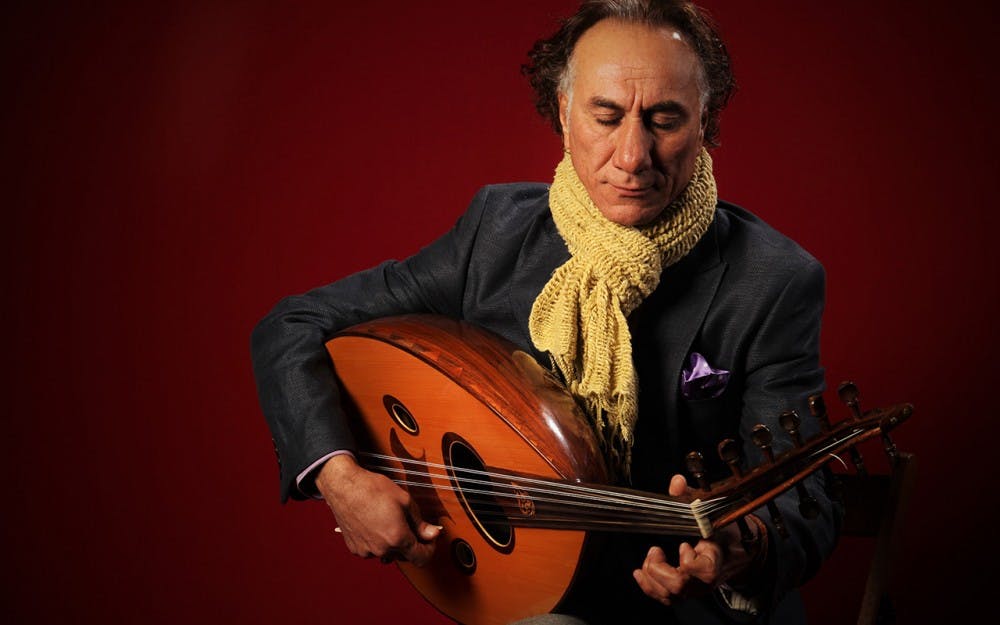In his second visit to the Bloomington community, Rahim AlHaj said he came to invoke a discussion and to improve knowledge about different cultures around the world with his public and private performances through the program Lotus Blossoms.
Lotus Blossoms, spanning five weeks, takes different artists from cultures around the world and brings them to the public and school children of Monroe and surrounding counties.
AlHaj, a Grammy-nominated oud player and political refugee from Iraq, said Bloomington has provided a welcoming environment for his performance.
“It’s a culturally rooted city, more progressive and understanding,” he said. “The people are familiar of world music, very educated with a great school and smart students.”
The oud is a string instrument in the same family of the guitar.
“The oud is a great concept,” he said. “You have to hug it to be able to play it. The sound vibrates inside your body. It’s incredible.”
Though he focuses on performing, AlHaj said he prefers to concentrate on talking to people over the performance.
“Music is important to understand,” he said. “I’m interested to send a message of peace, love and compassion.”
By playing his own compositions, he said he relates his songs to stories of Iraq and other parts of the world.
His composition “Letters from Iraq” uses this technique and translates actual letters written by Iraqi women and children to music with the oud, percussion and a string quartet.
The most difficult part of this translation was remaining faithful to the letters, he said.
AlHaj said he had to set his ego aside and decided to let the story flow over putting his instrument at the forefront.
“I let the stories be in the front and come in when is necessary,” he said.
He said it is important to get the message out there to people who believe in change to make the world a better place for generations to come, reaching people through song.
AlHaj said he wants to give these women and children a voice.
“Always they have their voices weak because of the masculine domination of the world,” he said. “It’s all about men, not about women.”
AlHaj, who began playing the oud at the age of nine, did not begin his activism through giving people voices solely with his instrument.
After the first Gulf War, AlHaj’s activism against the Saddam Hussein regime forced him to leave his home country. He moved to Jordan and Syria before beginning his life as a political refugee in the United States in 2000, according to his website.
He said people should focus on nurturing, love and compassion instead of war, violence and displacement.
This is why he said the current political situation worries him.
One of his bands, consisting of him, an Iranian, a Palestinian and a Korean musician, had to cancel its tour in Europe and different places around the world because his Iranian friend was not a citizen and only had a green card, he said.
AlHaj said they had to be canceled because they were not sure if the U.S. would let his friend in again when they came back.
“It’s inconceivable to me,” he said. “What difference does it make living in Central versus North America? Somebody can live in Africa or Asia but . . . all of us live in one globe, so why do we need to discriminate?”






